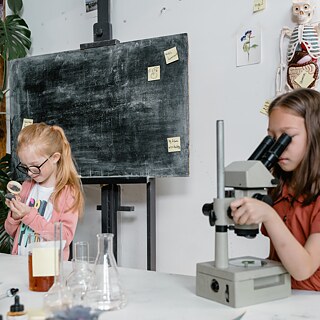The study of science experiments and the question of how such experiments could be integrated into a regular German lesson have led to these findings:
There is a large amount of interesting science experiments that are very easy to understand and perform and which can easily be integrated into a German curriculum.
For such an integration of experiments, certain rules and safety precautions have to be taken.
A prerequisite for successful implementation of such a project is that the materials needed can be easily obtained and in advance.
Some vocabulary (e.g., the names of the materials, simple phrases) should be pre-taught.
Learners should practice the way a researcher would proceed in experimentation, i.e.:
- Links to their own observations and life situation.
- Formulating a research question (e.g. W-questions, give examples)
- Forming hypotheses in conversation (vocabulary must have been introduced for this, e.g. Probably..., I assume that,… It is probable, that... or very simple propositions).
- Conducting an experiment in a team and making observations (taking notes, using a researcher's book).
- Think tank on how to answer the research question after conducting the experiment based on findings.
- Teachers must learn supportive methods (scaffolding), e.g. questioning techniques, visuals to aid the comprehension process, use of media to memorize, rehearse and consolidate thoughts, vocabulary, chunks.




